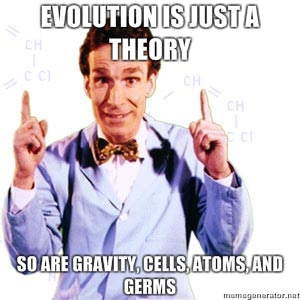Richard Feynman on How Scientists Can Believe in God
Posted by Ross Pomeroy at Thu, 11 Apr 2013 01:38:51
On May 2nd, 1956, acclaimed theoretical physicist Richard Feyman gave a lunchtime talk at the California Institute of Technology. The relation between science and religion was on the docket that day. To organize his thoughts, Feynman wove what may be a familiar story:
A young man, brought up in a religious family, studies a science, and as a result he comes to doubt -- and perhaps later to disbelieve in -- his father's God. Now, this is not an isolated example; it happens time and time again. Although I have no statistics on this, I believe that many scientists -- in fact, I actually believe that more than half of the scientists -- really disbelieve in their father's God; that is, they don't believe in a God in a conventional sense.
Feynman's words prompt a key question: Are all true scientists destined to become atheists? The answer, I believe, is no, or at least that doesn't seem to be the case judging by statistics.
Still, how is it that faith and science can co-exist? According to Feynman, the answer to this question lies in recognizing the limits of science:
I do not believe that science can disprove the existence of God; I think that is impossible. And if it is impossible, is not a belief in science and in a God -- an ordinary God of religion -- a consistent possibility?
Feynman responds to his query:
Yes, it is consistent. Despite the fact that I said that more than half of the scientists don't believe in God, many scientists do believe in both science and God, in a perfectly consistent way. But this consistency, although possible, is not easy to attain...
Here, Feynman is in agreement with other notable scientific minds, including Carl Sagan and Albert Einstein. Where evidence is lacking, concrete proof cannot be attained. Thus -- at this time -- we cannot conclude that God exists, but we also cannot conclude that God does not.
But that still doesn't answer how scientists can believe in both science and God. Ruminating further, Feynman returned to his example of the young scientist, whose skepticism is now flourishing:
What happens, then, is that the young man begins to doubt everything because he cannot have it as absolute truth. So the question changes a little bit from "Is there a God?" to "How sure is it that there is a God?" This very subtle change is a great stroke and represents a parting of the ways between science and religion.
From this parting of the ways, an opening is presented for scientists to reconcile their work with their faith. That opening is uncertainty. Firmly in the realm of science, uncertainty -- essentially acknowledged ignorance -- is the scientist's key to a legitimate belief in God:
If they are consistent with their science, I think that they say something like this to themselves: "I am almost certain there is a God. The doubt is very small." That is quite different from saying, "I know that there is a God." I do not believe that a scientist can ever obtain that view - that really religious understanding, that real knowledge that there is a God - that absolute certainty which religious people have.
Admitting uncertainty not only bridges the divide between science and religion, but also -- I believe -- can do the same when applied to a great many of life's seemingly perpetual disputes.
I think that when we know that we actually do live in uncertainty, then we ought to admit it; it is of great value to realize that we do not know the answers to different questions.

